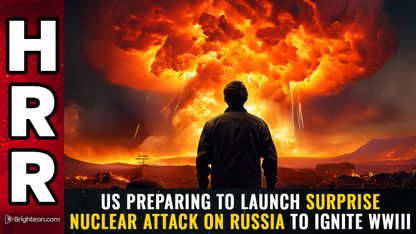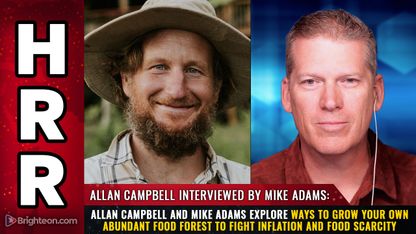
(Article by Sarah Agha republished from MiddleEastEye.net)
Many of those Palestinians now live in camps in the occupied West Bank, or in exile in surrounding Arab countries or in a blockaded Gaza. To understand the current situation, we need to acknowledge the Nakba of 1948.
In a previous article for Middle East Eye, I wrote about my journey co-presenting the BBC documentary, The Holy Land and Us, on this turbulent period in Palestinian history.
From a young age, I had been told that my grandparents had fled their village in fear in 1948.
Not only are most of the family today barred entry from the village, but it has been wiped from the map and renamed, as though it never existed. This has been part of Israel’s campaign, a tool it has used for 75 years, the complete and utter denial of Palestinian existence.
But the documentary revealed hard, tangible evidence to prove my great, great, great grandfather was a Bedouin sheikh in Palestine and that by the 1930s, we owned thousands of square metres of land in the village my family were eventually displaced from, never to return.
It also exposed what happened to Shereen Malherbe’s family who were villagers in the Deir Yassin massacre, and explored how Joanna Carolan’s family lost their orange groves and a thriving business during the violent chaos of the Nakba.
I believe in the power of art, culture and visual media to educate and inspire.
In my last article, I expressed that, while I believe The Holy Land and Us is an important watch using family stories to explore the sense of loss and injustice suffered, its two episodes cannot tackle everything.
Factual films are valuable in terms of laying out history, archives and evidence, while scripted films can paint a picture through characters and stories. So here are five other important productions which represent the Nakba on screen.
Al Nakba by Rawan Damen (documentary series, 2008)
In 2008, Al Jazeera made a four-part documentary on the Nakba. Fifteen years on I still consider it to be crucial watching for anyone keen to grasp what happened and how.
For Palestinians, 1948 was the year that dramatically affected everything. Lives were shattered in such a violent way and yet there has been little recognition of the injustice that occurred. Many of us cite this year as the starting point.
But this Al Jazeera documentary begins the narrative almost 150 years earlier, with Napoleon Bonaparte’s siege on the city of Acre (known as Akka to Palestinians) to establish a French presence in Palestine.
In search of allies, Napoleon issued a letter offering Palestine as a homeland to the Jews. The plan was revived by the British and also by French aristocrat Baron Edmund De Rothschild who spent 14 million French francs to establish 30 Jewish settlements in Palestine in the 1880s.
The documentary dwells on how his later involvement led to 60,000 Palestinians being forced to leave their home in the Marj Ibn Amer area in 1910.
One of the historians featured in the documentary states: “If the Nakba signifies the expulsion of the Palestinian citizen from his land and the seizure of his land, then the Nakba started decades before 1948."
The colonisation of Palestine started earlier than we think, and to explore the detail and extent of this is key in terms of understanding the greater picture.
The documentary starts in 1799, amid the French revolution, and continues all the way through to the great exodus of 1948. It succeeds in mapping out the history and facts in a clear, comprehensive way.
It is thoroughly researched, sensitively packaged and deeply engaging and, being spread out over four episodes, affords the story the space and time it deserves.
You can watch all episodes for free on Al Jazeera English.
The Time That Remains by Elia Suleiman (scripted feature, 2009)
Like all of Suleiman’s films, The Time That Remains is a semi-autobiographical collection of stylised scenes - there’s tragedy, heartache but also moments of comedy.
Despite the depiction of blindfolded Palestinian men awaiting their execution in olive groves or the exploration of generational trauma, the film has an absurd and disarming playful style.
It does not aim to be a historical dramatisation, but provides an inventive, artistic portrayal of what happened in Nazareth starting in 1948 then jumping forward to the present day.
Suleiman’s style is often absurdist, but some of the story’s most bizarre moments are rooted in events that actually took place. For example, the Zionist forces donning keffiyeh in order to fool Palestinian villagers as they advanced, or enjoying a cigarette with Arabic music while clearing out the former homes of Palestinian residents.
I personally find any visual representations of the Nakba deeply upsetting. Certain images or scenes will haunt my mood for weeks. So I feel Elia’s style of filmmaking is a clever, thoughtful way to encourage an audience to watch and reflect on the injustices that took place.
It is also beautifully shot with impeccable production design and a standout performance from the reliably brilliant actor Saleh Bakri.
I often thought this film should be called The People Who Remain, rather than The Time That Remains, as it explores the lives of some of the communities who were able to remain after the Nakba and how this catastrophic event still affects them today.
But apparently the title is a comment on the reality that Suleiman has never experienced Palestinian independence in his lifetime - and wonders whether he ever will.
The Time That Remains is available on online platforms including Google Play, Amazon Prime and Apple TV, among others
1948 by Mohammad Bakri (documentary feature, 1998)
We have already mentioned Saleh Bakri. Now we move on to his father, Mohammad Bakri. As well as having a long and successful career as an actor, the elder Bakri has also directed and produced a number of documentaries about the history of Palestine.
1948 is a 54-minute film featuring testimonials from eyewitnesses of the Nakba. It includes villagers who escaped the massacres of Deir Yassin (near Jerusalem) and Al Dawayima (near Hebron) and former inhabitants from destroyed towns in Tiberius.
In their own words, Palestinians describe the moments when they became refugees “never to return”.
As well as providing a platform for these survivors to immortalise their story, Bakri beautifully narrates verses by national poet Mahmoud Darwish.
The interviews are also intercut with footage of Bakri performing scenes from his one-man play The Pessoptimist, which was adapted from the satirical fiction novel by Emile Habibi.
Palestine has a long history of civil society, but also literature, poetry and art. The interweaving of Darwish and Habibi’s work between the testimonials reflects the many ways in which Palestinians creatively express themselves.
Despite hardships and obstacles, Palestinians prove their existence through cultural resistance, humanising their struggle with art.
After 1948, Bakri went on to make Zahara (2009), which follows the life and memories of a 78-year-old woman born in Galilee before the Nakba and Jenin, Jenin (2002) about the siege of the occupied city in the West Bank during the Second Intifada.
1948 was Bakri’s directorial debut and was timed to coincide with the 50th anniversary of the Nakba.
Now, another 25 years on, you might ask, "What has changed? How many more anniversaries must be realised before Palestinians are granted their freedom and dignity?"
All Bakri’s documentaries can be found online
Tantura by Alon Schwarz (documentary feature, 2022)
In a recent video interview for Middle East Eye, Israeli director Alon Schwarz stated, “Most Israelis believe the naive story that Palestinians ran away in 1948.
"They don’t know that the Israeli army went into village after village and drove the people out, sometimes committing war crimes like the massacre at Tantura.”
His film features interviews with former Israeli soldiers, mostly all in their 90s now, as they recount what happened at Tantura and the role that they had played in the killings.
It also features tapes from research conducted by Teddy Katz and explores the way in which his investigation into the massacre was shut down. Many of the accounts are horrifying.
What happened at Tantura was not an isolated event. It was one of the many villages which were targeted in 1948, but information about this has never been widespread, even though Palestinians have been saying it for decades.
It is interesting to note that in 2020 Palestinian-American filmmaker Hala Gabriel Yahya made a similar documentary featuring testimonies called One Night In Tantura.
Her own parents fled Tantura in 1948 and yet her film is certainly the lesser known project on the topic. It did not have the same outreach, response or distribution that Schwarz’s production had.
There is a whole conversation to be had about how or who should tell these stories, but this does not take away from how important Tantura is in terms of exposing the sheer violence and brutality of what occurred.
The film is a triggering watch, but the testimonies speak for themselves and is a powerful contribution to modern Nakba representation.
The former site of Tantura now lies under a car park of a beach resort in Israel. As Yahya says, this is “the history which has long been denied and almost forgotten”. While Schwarz asserts: "My message to Israelis is that they need to recognise what actually happened.''
Tantura can be watched online and is being screened by the International Centre of Justice for Palestinians at BAFTA on 22 May
Farha by Darin J Sallam (scripted feature, 2021)
Of course this list would not be complete without Farha. The film on everyone’s lips including the Israeli government who rallied for its ban in 2021. The move unmistakably drew even more attention to the film made by the talented Jordanian-Palestinian filmmaker Darin J Sallam.
Such bullying or intimidation might have been effective in the past, convincing organisations to withdraw support.
But Netflix defending its decision to host the film on its platform reveals the distinct shift that has occurred in the discourse. The fact that this critically acclaimed film about the Nakba is now on such a popular mainstream platform is a real breakthrough.
Sallam says that Farha is based on a true story, which she had heard as a child, about what happened to a young girl in a Palestinian village in 1948.
When we meet her, she is voraciously reading a novel in what appears to be a luscious, green, peaceful country and is keen to convince her father to allow her to pursue an education in the city.
We see Farha as a spirited girl with ambition and ability discussing future plans with her best friend who visits by car from the city. What happens next is hard to watch. A dramatisation of harrowing turmoil and violence brought to life by moving, meaningful performances.
The final text at the end of the film explains how she shared her story and kept it “alive for generations to come”.
This defies the notion that the "old will die and the young will forget", and instead shows that these stories have been passed down from generation to generation, and will finally be heard by millions of people around the world.
I am sure Sallam’s success will pave the way for other Palestinian filmmakers to tackle this topic with bravery and confidence - these stories matter and will be heard.
Read more at: MiddleEastEye.net
Please contact us for more information.





















